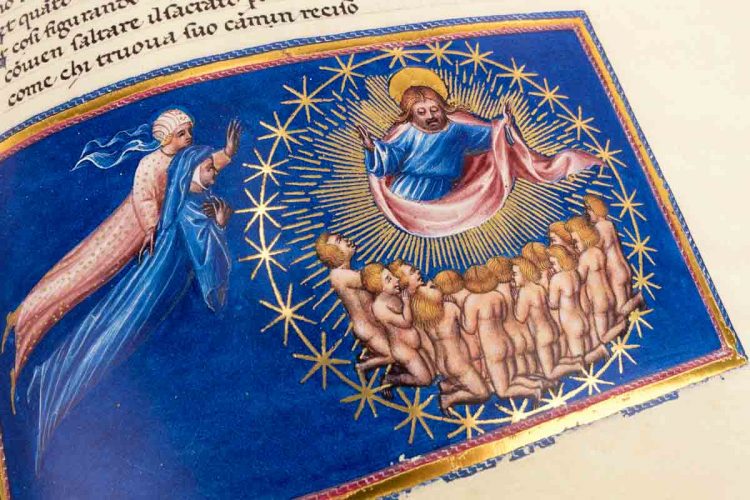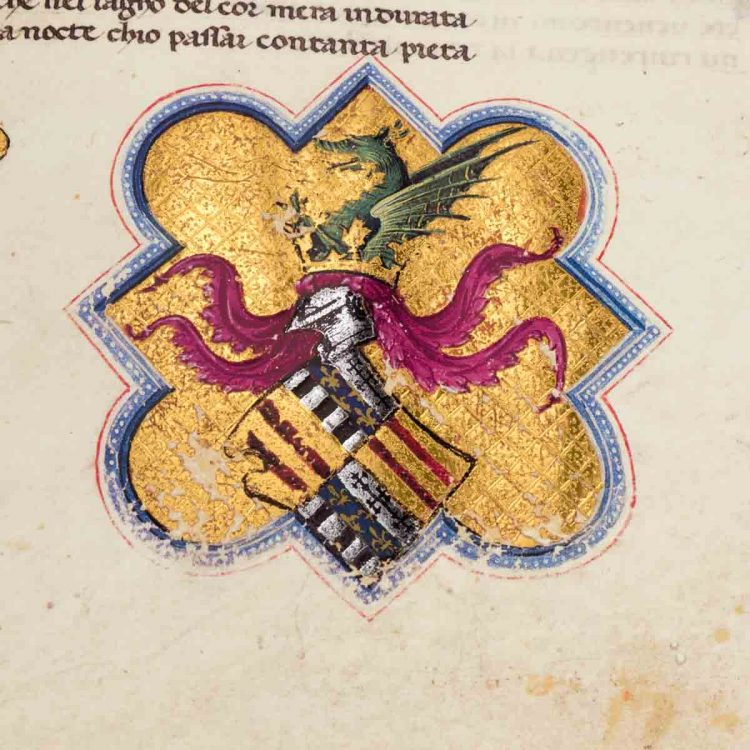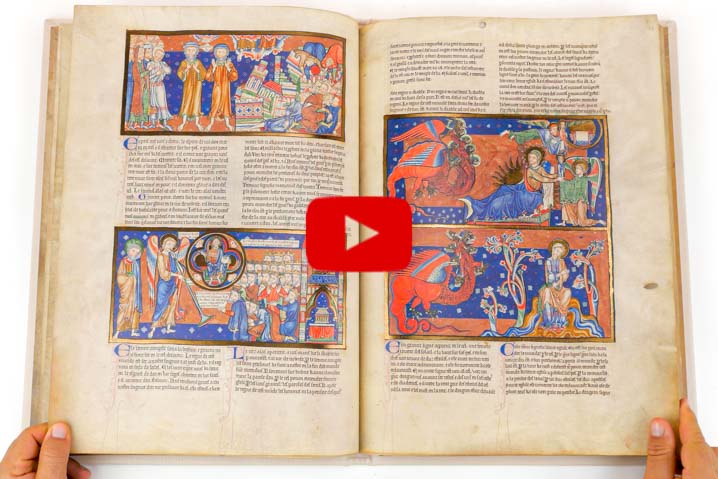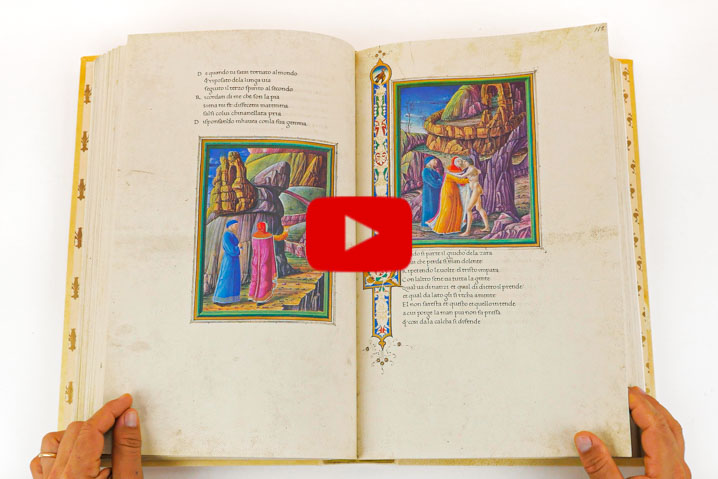The Divine Comedy of Alfonso of Aragon witnessed the Italian Renaissance, the Spanish Inquisition, and lived in the library of a prominent English book collector of the 19th century. We could not miss the opportunity to ask some questions!
You were named after one of the most prominent rulers of the Renaissance. How does it feel like to bear his name?
You humans have a funny thing about names. I’ve seen so many kingdoms, libraries, and countries in half a millennium that I can hardly remember all of them, and you ask me about my name?
Alfonso was my first owner, so I guess it makes sense to call me by his name. But my beloved patron was only a very small part of this troubled journey.
I didn’t know how lucky I was to be part of one of the greatest libraries of the Renaissance until 1501, when the Spanish and the French invaded our kingdom and I was condemned to a life of turbulent travels.
What happened to you after the invasion?
To protect me and the other books from destruction, Alfonso’s heir Federico decided to transfer us to the island of Ischia, which wasn’t very far from home. But that wasn’t enough: soon after, we moved to the castle of Plessis-lez-Tours, in a country you now call France.
When Federico died in 1504, his wife Isabella del Balzo moved back to the Italian peninsula and took us with her. You’d think we were glad to be back home but our new mansion was in Ferrara, a swampy town in the north that had nothing to do with Naples!
By then, I had settled for a restless existence, and I was fortunate enough to be the first manuscript listed in the “Vernacular poets” section of our new catalog. After all, only 800 books from the original library were left.

Can you tell us about your life in Spain?
It was the darkest hour of my life. One morning, I literally woke up in another country, in the monastery of San Miguel de los Reyes in Valencia. And then in 1612 Bernardo de Sandoval y Rojas, one of Spain’s most feared inquisitors, published a list of text passages to be erased from certain manuscripts.
It was such a humiliating experience that the full Latin name of the document is still inscribed in my mind: Index Librorum Prohibitorum et Expurgatorum … D. Bernardi de Sandoval et Roxas … Generalis Inquisitoris … The following year Antonius Ollet opened me and effaced three passages of my text.
As if that weren’t enough, he ruined the marvelous ending of the Divine Comedy by describing his criminal actions in a note.
Who was your favorite owner?
As much as I consider Alfonso of Aragon my “father”, Mr. Henry Yates Thompson, who kept me in his collection from 1901 until his death in 1928, holds a special place in my heart. I believe I’ve never seen anyone so passionate about knowledge before.
How would you judge someone who strives to collect the world’s 100 most valuable volumes in one single place? You would probably think he is crazy, or naive, because let’s be serious, beauty cannot be judged objectively. But he never gave up.
What can you tell us about Mr. Henry Yates Thompson?
Every single morning before breakfast, Mr. Henry would pick me up, take me to the billiard room and hold me in his lap to study the Divine Comedy and learn the Italian language.
Between 1917 and 1918, Mr. Henry decided to sell me and all the other books because he had a cataract in both eyes, and he wasn’t able to enjoy our beauty anymore. Back then, cataract surgeries were postponed until the patient was almost blind.
When Mr. Henry was finally able to see again, many of his books had already been sold. His wife inherited us after his death, and when she too passed away in 1941 we were given to the British Library, as part of one of the greatest gifts of manuscripts it has ever received.
NEW WEEKLY VIDEOS
Find out more about the Trinity Apocalypse (Cambridge, Library of the Trinity College, MS.R.16.2) on our website!
Find out more about the Divine Comedy “Dante Urbinate” (Vatican City, Biblioteca Apostolica Vaticana, Ms. Urb. lat. 365) on our website!










